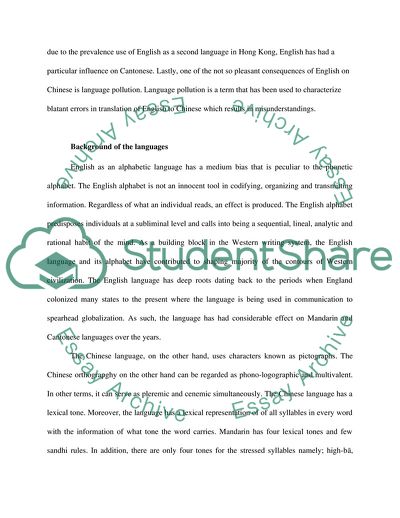Cite this document
(The Impact of English on Chinese Report Example | Topics and Well Written Essays - 4750 words, n.d.)
The Impact of English on Chinese Report Example | Topics and Well Written Essays - 4750 words. https://studentshare.org/humanitarian/1847474-the-influence-of-english-language-on-modern-chinese-language
The Impact of English on Chinese Report Example | Topics and Well Written Essays - 4750 words. https://studentshare.org/humanitarian/1847474-the-influence-of-english-language-on-modern-chinese-language
(The Impact of English on Chinese Report Example | Topics and Well Written Essays - 4750 Words)
The Impact of English on Chinese Report Example | Topics and Well Written Essays - 4750 Words. https://studentshare.org/humanitarian/1847474-the-influence-of-english-language-on-modern-chinese-language.
The Impact of English on Chinese Report Example | Topics and Well Written Essays - 4750 Words. https://studentshare.org/humanitarian/1847474-the-influence-of-english-language-on-modern-chinese-language.
“The Impact of English on Chinese Report Example | Topics and Well Written Essays - 4750 Words”. https://studentshare.org/humanitarian/1847474-the-influence-of-english-language-on-modern-chinese-language.


